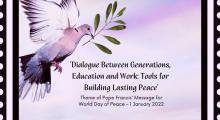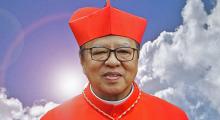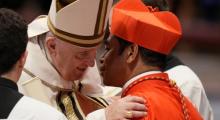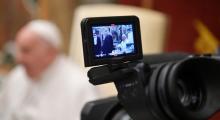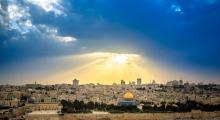Issued by the Catholic Center for Studies and Media - Jordan. Editor-in-chief Fr. Rif'at Bader - موقع أبونا abouna.org
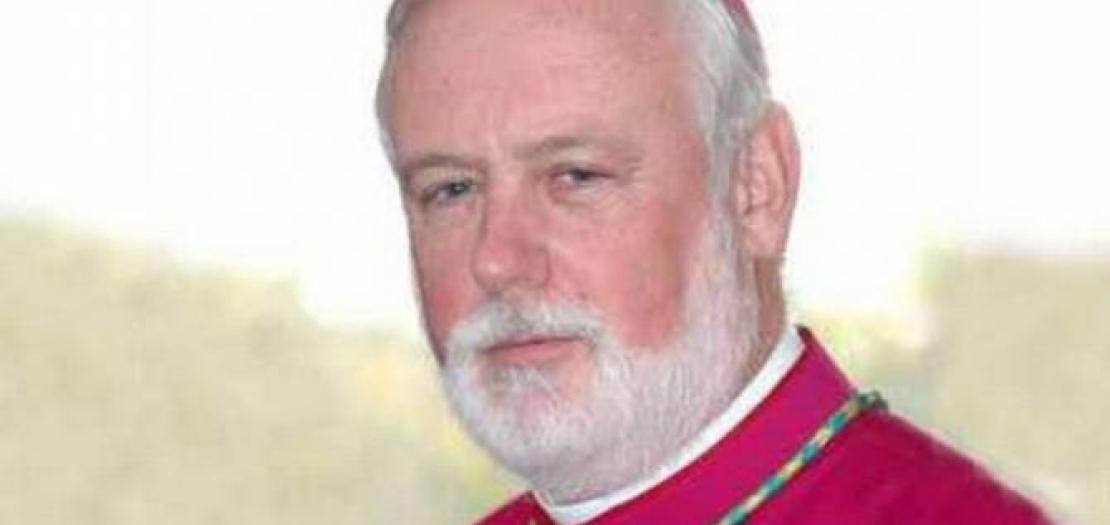
“Authentic and lasting international peace cannot rest on a balance of military power, but upon mutual trust”, the Holy See has reminded the world.
“This unprecedented pandemic sheds new light on the interdependence between Nations and, in particular, on the necessity to consider health as a primary common good, which requires solidarity and coordinated action at the global level”, the Vatican ‘foreign minister’, Archbishop Paul Richard Gallagher, told participants at the 64th General Conference of the International Atomic Energy Agency (IAEA) in Vienna September 21.
Gallagher – the Vatican Secretary for Relations with States – conveyed to the gathering the “best wishes and cordial greetings” of Pope Francis, and said that the Holy See “commends and supports” the many activities of the IAEA that strengthen international cooperation.
Referring to the IAEA Zoonotic Disease Integrated Action (ZODIAC) project specifically, the Vatican official said that that “important global network” is “crucial to helping national laboratories in monitoring, surveillance, early detection and control of animal and zoonotic diseases such as COVID-19, Ebola, Avian Influenza and Zika”.
“The current COVID-19 pandemic has exposed problems related to virus detection capabilities in many countries, as well as the need for better communication between health institutions around the world”, Gallagher observed.
Echoing words of Pope Francis’ in his Easter Urbi et orbi blessing this year, the archbishop said that with regard to COVID-19 we as a humanity “have to pass through the night of a world already faced with epochal challenges and now oppressed by a pandemic severely testing our whole human family”.
“This pandemic highlights the real priorities facing our human family, such as the fight against poverty, the promotion of peace, the undertaking of educational, ecological and healthcare projects, and the development of fundamental human rights”, Gallagher continued in another quotation from Pope Francis, this time adapted from the pontiff’s message to the International Symposium on the Prospects for a World Free of Nuclear Weapons and for Integral Disarmament in November 2017.
Gallagher continued in his speech by recalling that “a world of peace, free from nuclear weapons, is the aspiration of millions of men and women everywhere”.
“However, authentic and lasting international peace cannot rest on a balance of military power, but upon mutual trust”, the archbishop warned.
Again citing Pope Francis, in his 2017 Message to the United Nations Conference to Negotiate a Legally Binding Instrument to Prohibit Nuclear Weapons, Leading Towards Their Total Elimination, Gallagher stressed that that “mutual trust” necessary for world peace “can be built only through dialogue that is truly directed to the common good and not to the protection of veiled or particular interests; such dialogue, as far as possible, should include all”.
The Vatican official emphasized: “Humanity, at its best, has the ability to use its intellect for the common good. Such dialogue needs to take place without polarization and recrimination, and in a spirit of concern for our common home”.
Insisting with the Pope that “there is a need to break down the climate of distrust that risks leading to a dismantling of the international arms control framework”, Gallagher said “the Holy See remains concerned about the worrying signs of an erosion of multilateralism and of the rules-based order, especially in the control and ban of nuclear weapons”.
However, he added that despite the lapse of the Intermediate-Range Nuclear Forces Treaty, the fact that the Comprehensive Nuclear-Test-Ban Treaty has still not entered into force and the lack of progress within the Conference on Disarmament, “we cannot lose hope… and we must continue to work towards our common goal of the elimination of nuclear weapons”.
Gallagher closed his speech Monday expressing the Holy See’s “gratitude and appreciation” for the other activities of the IAEA beyond the control of nuclear weapons, such as with regard the enhancement of radiotherapy programs particularly in low- and middle-income countries, or the Agency’s use of nuclear technology to monitor greenhouse gas emissions.
“The Holy See reiterates its sincere gratitude and affirms its unwavering support for the IAEA’s many contributions to nuclear non-proliferation and disarmament, as well as to the safe, secure, and peaceful, development and operation of nuclear technologies”, Gallagher concluded.


